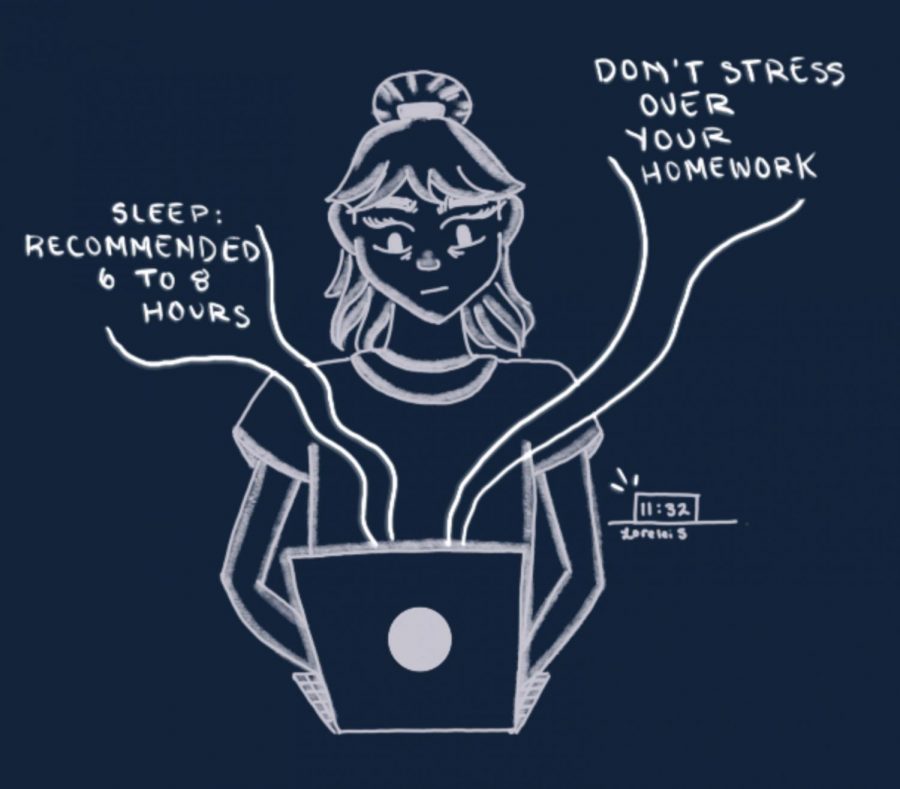All is Not Well in Wellness
As they began their first year at the Lakeside Upper School, freshmen were told to have an open mindset and to not jump to conclusions on our courses and peers. Even with this attitude, it was almost impossible to walk between classes without catching snippets of complaints and judgements from others’ conversations. Soon, freshmen were able to discern patterns in the classes considered more or less favorable, and a disproportionate majority of these grievances (most of them concerning copious amounts of homework and lack of a focus on LGBTQ individuals in the curriculum) revolved around a singular, unassuming class: Wellness.
While many imagine Wellness as the paradigm of a useful class (after all, what other class’s lessons could students actively apply to situations throughout their lifetime?), many current and former freshmen who took the course describe it as otherwise. Out of 46 freshmen polled, 39 (85%) agreed that Wellness gives too much homework, with most going as far as to say that the amount of assignments is detrimental to their mental health and stressing them out. Moreover, all but two of the seven who had different opinions on the matter stated that the homework load was manageable but that the Wellness curriculum needed to be seriously amended in terms of focus.
Adding to the cry for a reduced workload in Wellness, one freshman notes that “there is so much homework [that] it does not allow us time to work on other things, and thus contributes to stress and anxiety, decreasing our mental wellbeing.” Multiple others echo this sentiment, expressing that Wellness has had the most homework out of all of their classes (with students citing that one Friday, they had three separate assignments and a reflection due). Another student argues that while some Wellness homework is warranted, the amount of homework given is excessive and “unnecessary to maintain the important topics of the curriculum.” In essence, while Wellness is meant to be a helpful class (and many aspects of it are essential to our wellbeing), the amount of homework it prescribes makes many students feel that it is, instead, a slog of unfulfilling work.
In addition to the at-times unmanageable workload, there is also a sense that the Wellness curriculum is not up to date. One student notes that the course should “add more LGBTQ+ material. I don’t know how it is now, but aside from a few mentions, queer education was nonexistent while I was in freshman year. It would have made my life a lot easier.” Considering GLOW and other LGBT organizations have a large presence on campus, this is a major gap in the Wellness curriculum. In addition, others express issues with the curriculum’s attitude towards race, describing how they “don’t see how focusing so hard on racial and identity division is supposed to help towards equality and unity.” Students express that we need future generations who are aware of racial divide but also understand what is necessary for racial unity and solidarity.
Commenting on these proposed amendments to the class and curriculum, Ms. Lutton, the head of the Wellness department, replied that they had “rolled out a brand new curriculum for Wellness starting in the 2020-21 school year…and we had some bumps in the road with students feeling that there was too much work outside of class. We made adjustments in the spring semester last year, and more adjustments this year.” She also noted that though improvements had been made, there was still work to be done in this regard, and that the 9th grade Wellness teachers would be receptive to feedback from students. As for the content of Wellness, Ms. Lutton noted that “while every aspect of Wellness may not feel applicable to every student as a 9th grader, we hope that the lessons we teach are helpful as students continue to grow through high school. As far as including inclusive sexual health education…this is an area where I think we are always growing and always seeking feedback.” Thus, because the Wellness department recently revamped its curriculum, they stated that they will listen to and attempt to incorporate feedback from students in the curriculum as best as they can.
Although the intention behind Wellness is well-placed, students feel that its current curriculum and structure negatively contributes to their mental health through onerous assignments and that it’s in dire need of an updated curriculum – especially concerning race in America and LGBTQ+ representation. However, in her interview, Ms. Lutton noted that the Wellness department has been rolling out a new curriculum, and that they are receptive to feedback. While teachers have the ultimate say, Wellness is very much for the students, and by the students, so, with time and meaningful discourse, change will follow; change for the benefit of all.
Conceitedly, his favorite month is December
As his birthday falls in December 2006
And even more, his favorite holiday is that of December 25
As...
Ever since his little incident in April 26, 1986, Rohan Dhillon has been on the run from a variety of governmental agencies and human rights organizations—...

